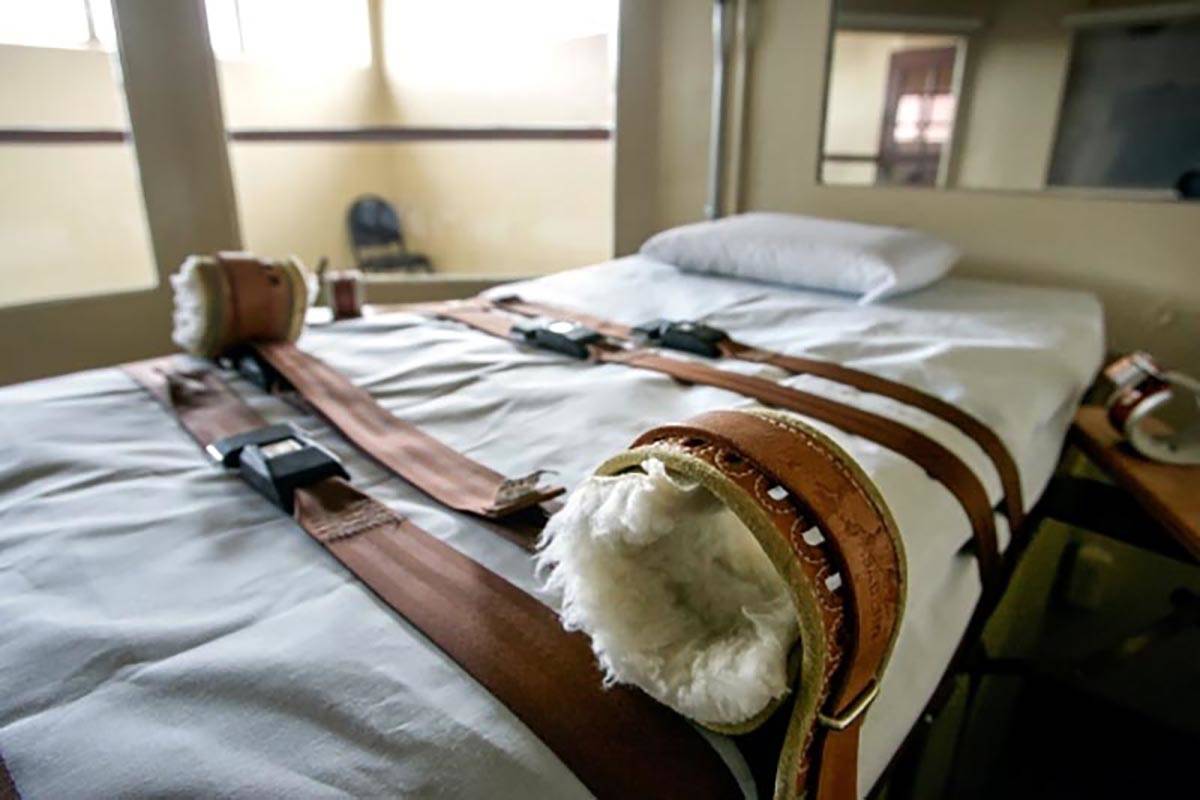Black protests limits on Assembly floor speeches
CARSON CITY — One of the Assembly’s newest members is definitely not adhering to the rule that freshmen should be seen and not heard.
Assemblywoman Annie Black, R-Mesquite, is becoming known for floor speeches that irritate the majority Democrats. She was shut down when trying to force the Legislature to open the building — closed since the start of the session because of the coronavirus — to the public. And she was reprimanded when she mentioned President Joe Biden’s “border crisis,” since rules prohibit mentioning other lawmakers by name. (Technically, of course, the president is not a member of the Assembly.)
On April 2, Black began to speak about the crimes of a death row inmate, but was interrupted and told that it was inappropriate to discuss legislation on the floor until the bill in question was up for a vote. (A death penalty bill did pass an Assembly committee Friday, but has not yet come to the floor.)
Black — in an email to supporters — said she was just talking about the issue in general, not the bill in particular, but that still didn’t pass muster with the majority. So she encouraged supporters to contact Assembly Majority Leader Teresa Benitez-Thompson, D-Reno, to register their objections.
Apparently, they did, and Benitez-Thompson responded with a zinger that got back to Black, who recounted it in another email to supporters. The money line:
“Thank you for emailing,” the Benitez-Thompson email reads, according to Black. “Mesquite has had some wonderful elected representatives whom I have had the pleasure of working with over a number of years. I hope your community is once again able to find an effective voice to advocate for your needs.”
Ouch. But at least Benitez-Thompson didn’t mention Black by name.
The odds that Black will back down? Zero percent, according to her email. “The bottom line is that TBT should not be acting as the ‘speech police’ and only allowing remarks SHE thinks are ‘effective in ensuring’ your values are being voiced. That’s for YOU to decide.” (The emphasis was most definitely in the original.)
■ Republicans last week came out firmly against a bill sponsored by Democratic Speaker Jason Frierson that would get rid of the state’s caucuses in favor of a presidential preference primary held in February.
The GOP members of the Assembly Legislative Operations and Elections Committee voted no because of the cost, and because they feared Nevada’s moves might run afoul of national party rules.
In a letter, Nevada Republican Party Chairman Michael McDonald opposed the bill.
“One of the many benefits of our current caucus system is that it brings neighbors together,” he wrote. “Politics have a human face, as neighbors represent their preferred candidate and dedicate their time, energy, and passion to see them represented all the way to the state level. Caucuses are the product of an engaged citizenry — and Nevada deserves more engaged citizens.”
Then again, in 2020, with an incumbent president and a handful of weak challengers, the state GOP opted to forgo the bringing together of neighbors and bind the party’s delegates to Donald Trump without going through a caucus.
And then there was the infamous Republican caucus of 2012, where recounting of ballots took days.
It’s not just Republicans, either. Caucuses by their nature are chaotic, time-consuming affairs that require people to spend far more time than they would in a voting booth.
But the Republicans haven’t always been against the idea of a presidential primary. In fact, in 2015 when the Legislature was under Republican control, the state Senate passed a very similar bill, which would have replaced the caucus with a February primary. (The GOP bill would have consolidated all races — presidential, state and local — into a single election, while Frierson’s measure would hold the February election only for president and leave the existing primary in June.)
State Sen. James Settelmeyer, R-Minden, had a different view that the one McDonald presented this week. According to the Review-Journal, Settelmeyer in 2015 said Nevadans are uncomfortable meeting in small groups and airing their candidate preferences openly, as is done in a caucus. Instead, Settelmeyer said, they’d rather make their selections privately at the ballot box.
Oh, and back in 2015, Democrats opposed the switch and voted against it.
■ The Legislature’s schedule for the week ahead is fairly light, following the race to move bills out of committee. The next legislative deadline, by which bills must pass out of the house where the were introduced, is April 20.
Carson City Journal is a weekly feature that summarizes the major events happening in the capital during the 2021 legislative session and provides a look at what’s coming next.
Contact Steve Sebelius at SSebelius@reviewjournal.com. Follow @SteveSebelius on Twitter.




















